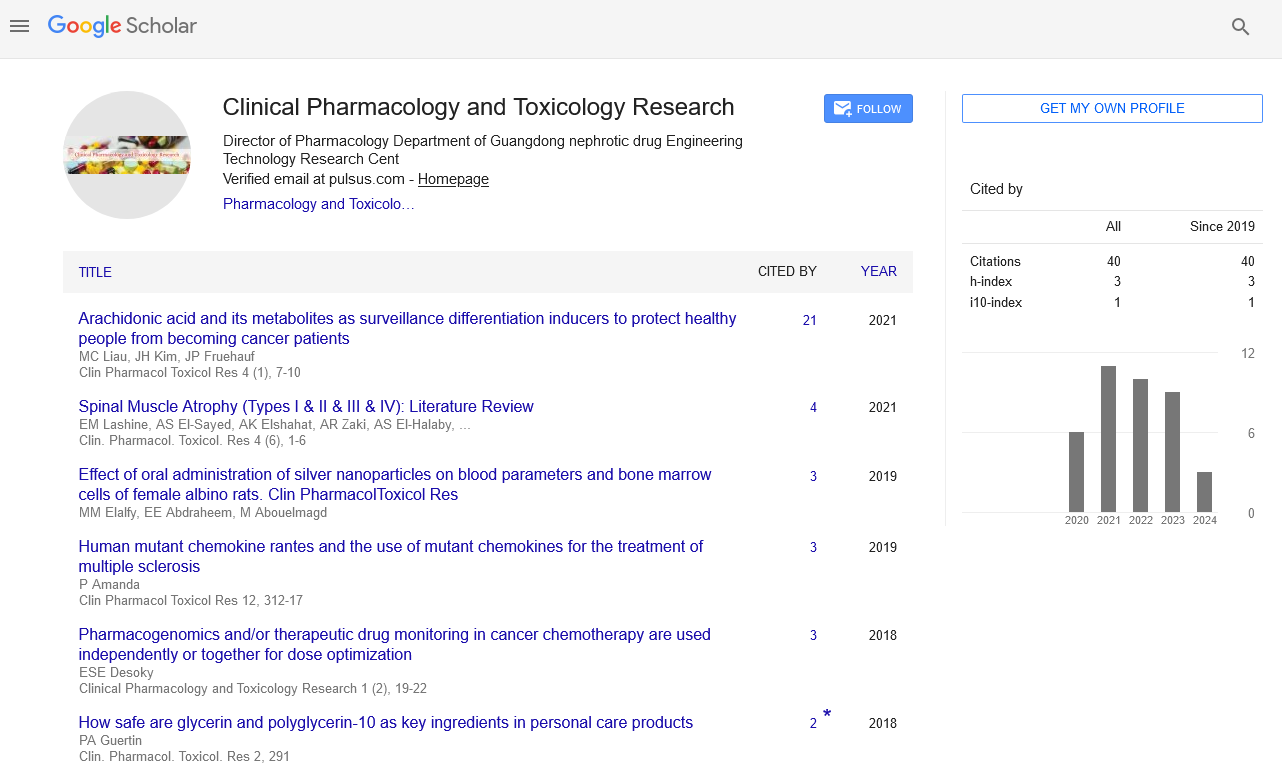
Sign up for email alert when new content gets added: Sign up
Synthetic cannabinoids-ethyl esters: New Biomarkers of concomitant ethanol/ synthetic cannabinoids abuse?
2nd International Conference on TOXICOLOGY AND CLINICAL TOXICOLOGY
November 11-12, 2019 | London, UK
Vincenzo Abbate
King’s College London, UK
Posters & Accepted Abstracts: Clin Pharmacol Toxicol Res
Abstract :
Statement of the Problem: Synthetic cannabinoids (SCs) represent the most widely abused class of novel psychoactive substances and have caused a number of fatal and non-fatal intoxications. Polydrug use including combination of SCs and ethanol misuse is also quite common. However, there have been no reports presenting evidence of transesterification between SCs and ethanol in vitro or in-vivo.
Methodology & Theoretical Orientation: The in vitro metabolism of the several carboxylate SCs in the presence of ethanol using human liver microsomes with and without appropriate enzyme inhibitors was studied. Newly identified SC ethyl esters were chemically synthesised and fully characterised. The activity of these SCs and their ethanol transesterification products were assessed using cannabinoid receptor (CB1 and CB2) activation assays.
Findings: SCs/ethanol transesterification products were detected and studied using liquid chromatography–high-resolution mass spectrometry. We have shown that the SC ethyl ester formation is mediated by human carboxyl esterase enzymes. However, for certain SCs, chemical transesterification was also observed. Selected ethyl esters exhibited a reduced activity for the CB receptors compared with their parent compounds.
Conclusion & Significance: These novel ethyl esters may be useful additional markers of SCs/ethanol concomitant administration and especially so if they prove to have longer half-lives than their parent compounds. Clinical and forensic laboratories should screen for the potential presence of these new potential markers during toxicological analyses.
Biography :
E-mail: vincenzo.abbate@kcl.ac.uk




